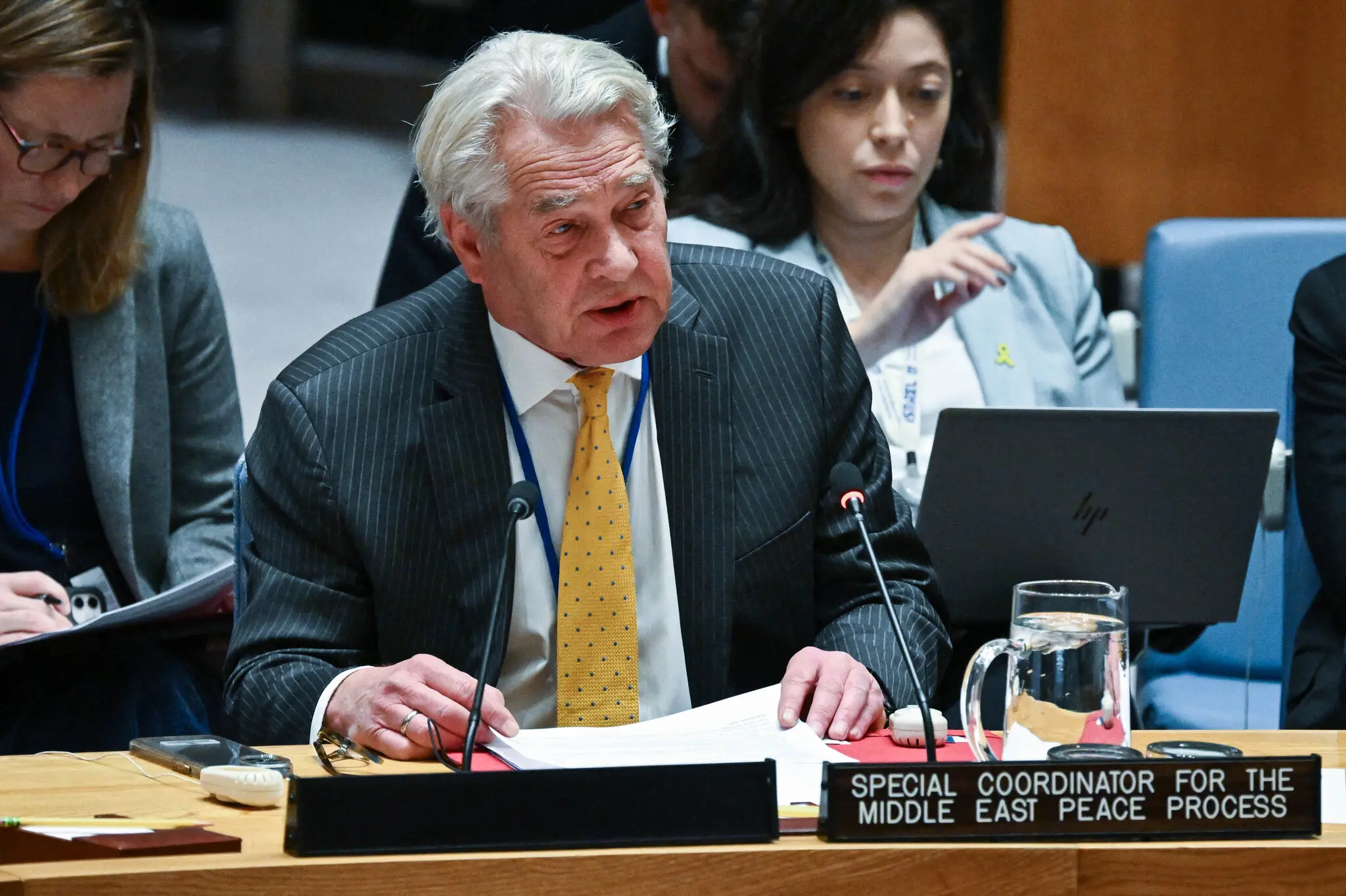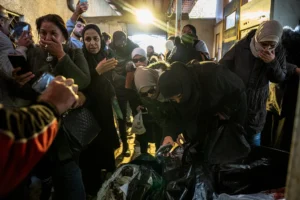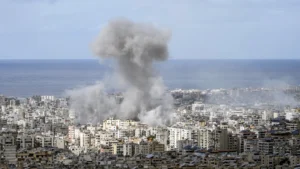World leaders failed to focus on a permanent solution to the Israeli-Palestinian conflict and risk making the same mistake again, the departing United Nations’ envoy in the region says.
By Eldin Yovlz | Dec 03, 2024 Updated 09:43 a.m. ET
In September last year, the top United Nations envoy for the Middle East peace process left a meeting with Hamas leaders in Gaza thinking that he had helped avert a major escalation.
The veteran Norwegian diplomat, Tor Wennesland, said he believed that Hamas had agreed to reduce recent tensions along the Israel-Gaza border in exchange for more work permits for Gazan workers.
But Hamas had bluffed Mr. Wennesland, along with the Israeli leadership and much of the international community. Days later, the group’s fighters attacked Israel, setting off the deadliest year in the history of the Israeli-Palestinian conflict.
It was a misconception that Mr. Wennesland now says is emblematic of the problem with the international community’s recent approach to the Israeli-Palestinian conflict.
As he retires after a four-year tenure, Mr. Wennesland, 72, says world leaders have wrongly focused on short-term fixes, including small-scale humanitarian initiatives in Gaza, at the expense of a more ambitious push for a Palestinian state.
“The feeling that Hamas had no interest in the conflict — that was the mantra, and it was wrong,” Mr. Wennesland said in a parting interview before leaving Jerusalem last weekend. “I’m somehow blaming myself for not getting that, not that I was the only one,” he added.
In the half-decade before the war, he said, the international community had focused on improving the economy in Gaza, hoping that higher levels of employment and a better quality of life in the blockaded territory might prevent more flare-ups between Hamas and Israel. Foreign leaders also focused on diplomatic deals between Israel and other Arab states, believing that they might eventually and indirectly lead to peace with the Palestinians.
Both approaches, Mr. Wennesland said, ultimately failed to solve the main issue driving the conflict in Israel, Gaza and the West Bank: the lack of a permanent settlement between Israelis and Palestinians.
“Politics failed. Diplomacy failed. The international community failed. And the parties failed,” said Mr. Wennesland, who has been involved in Mideast peace initiatives for more than three decades.
“What we have seen is the failure of dealing with the real conflict, the failure of politics and diplomacy,” he added.
The failure to reach a permanent resolution was, in some ways, caused by a rift between Hamas and its West Bank-based rival, Fatah, preventing Palestinians from forming a united front, he said. This also reflected the growing strength in Israel of right-wing leaders who oppose Palestinian sovereignty, he said.
But it was also linked to how Western leaders — distracted by the migration crisis in Europe, the coronavirus pandemic and, finally, the war in Ukraine — had stopped convincing Israelis of the need for a two-state solution and Palestinians of the need for a united front, Mr. Wennesland said.
“Politics is what ends war, and diplomacy is what ends war,” Mr. Wennesland said. But for more than half a decade, international attention has been shifting “towards dealing with the day-to-day humanitarian situation, and with less attention on the politics,” he said.
Mr. Wennesland’s stance makes him something of an outlier among Western diplomats. In private, many officials express growing doubts about the viability of a two-state solution to the conflict, particularly with the Israeli public increasingly opposed to Palestinian sovereignty. But that approach risks becoming a self-fulfilling prophesy, Mr. Wennesland said, because it allows opponents of Palestinian sovereignty to set the terms of debate.
“The spoilers have been more effective, determined and fast moving than diplomats and politicians” in the West, he said.
In many senses, the contours of Mr. Wennesland’s career reflect what he sees as the gradual shift in international focus.
In the 1990s, he worked for the Norwegian government as it helped facilitate interim peace agreements known as the Oslo accords.
A decade later, he was the Norwegian envoy to the Palestinians, amid a renewed U.S.-led push for a Palestinian state.
But by the time he was appointed United Nations special coordinator for the Middle East peace process in late 2020, the primary American focus was on peace agreements between Israel and other Arab states, including the United Arab Emirates, instead of between Israel and the Palestinians.
Now, Mr. Wennesland said, world leaders are failing to lead the discussion about what a postwar Gaza looks like.
Without significant Western resistance, Israeli officials are pushing to maintain Gaza’s isolation from the West Bank after the war. Israel considers the Palestinian Authority, which administers Palestinian cities in the West Bank, too incompetent and corrupt to take over Gaza.
But sidelining the authority would sustain the disconnection between the two territories that began in 2007, when Hamas forced the authority’s leaders from power in Gaza.
Mr. Wennesland said that it would be a mistake to cede the narrative battle to Israel, because sidelining the authority would make it harder to create a Palestinian state in both territories.
“We need to set the parameters clearly,” he said. “If Gaza is de-linked institutionally as it has been since 2007, I think it will be very difficult to reconnect.”





Be First to Comment